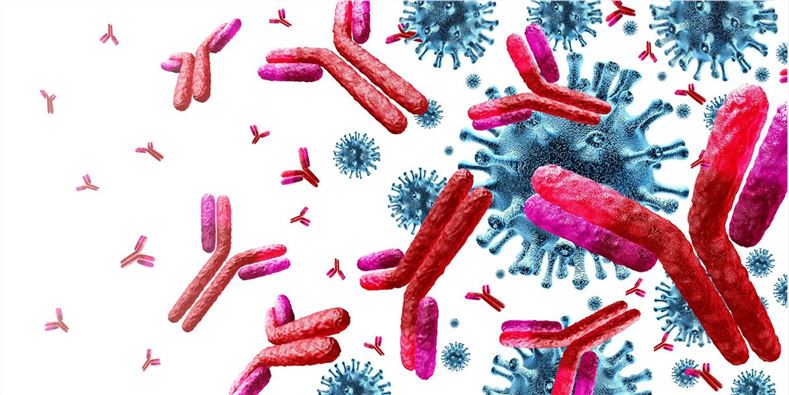VHH retains the complete antigen-binding ability of heavy chain antibodies and has the advantages of high specificity, good affinity, and high stability. Currently, it is widely used in biochemical mechanism research, structural biology, and the diagnosis and treatment of tumors and other diseases. Compared with other monoclonal antibodies, VHH is more resistant to temperature. It has been reported that VHH fragments are more stable than most other conventional antibody fragments even at temperatures up to 90°C, and the thermal unfolding of VHH has been shown to be reversible. However, there are some limitations to this heat-stabilizing activity, which is clearly detrimental to the further application and development of VHH. Therefore, it is important to seek ways to screen for thermally stable VHH. Based on our extensive field experience and phage display platform, Creative Biolabs provides comprehensive services to support the development of thermally stable VHH.

VHH, also known as single-domain antibodies and camelid antibodies, are artificially engineered antibody molecules. VHH has a molecular weight of only 10% of that of conventional antibodies, yet it retains the complete antigen-binding ability of heavy chain antibodies. In addition, VHH has the advantages of high specificity, good affinity, and high stability. At present, VHH has been widely used in biochemical mechanism research, structural biology, and the diagnosis and treatment of tumors and other diseases. As we all know, antibodies, as biomolecules, are easily affected by various factors, such as temperature, and VHH as an antibody is no exception. Temperature changes during the preparation, transportation, and storage of VHH may affect the structure and activity of the antibody. In some special research and application processes, the involvement of thermally stable VHH is also required. Therefore, screening for thermally stable VHH is crucial.
It has been found that phage display technology is an excellent method for thermal stable VHH screening. First, phages are very stable macromolecules. Many factors that may inactivate the protein do not affect the structure or infectivity of phage, such as temperature, urea, dithiothreitol, acidic environment, and so on. Secondly, phage display technology is well-established in the field of antibody screening, which facilitates the screening of thermally stable VHH. The secondary capsid protein III (pIII) of phage M13 has three structural domains: the C-terminal (CT) structural domain and two N-terminal structural domains (N1 and N2). If the N-terminal structural domain of the phage is missing or removed, the phage particle cannot infect the bacterial cell. This property has been used to isolate variants with improved properties, such as better thermodynamic stability. If the antibody variants are heat-resistant, then protein III remains intact during the selection process and these phage particles will be isolated, propagated, and enriched in each subsequent round of selection. Thus, if a wild-type protein or structural domain loses its three-dimensional structure or binding function under specific conditions, it is possible to create mutagenic libraries and select fold-stabilized monoclonal antibodies.
The advantages of phages and phage display technology provide a new research direction for screening thermally stable VHH. In the study, VHH can be screened in multiple rounds by constructing phage display variant libraries. Different temperature gradients can be set for screening according to specific research needs. After each round of screening, isolation, propagation, and enrichment can be performed to obtain VHH variants that maintain their folding and activity.
Creative Biolabs has a wealth of knowledge and experience in screening thermal stable monoclonal antibody. We would be happy to share our knowledge and experience with you.
All listed services and products are For Research Use Only. Do Not use in any diagnostic or therapeutic applications.